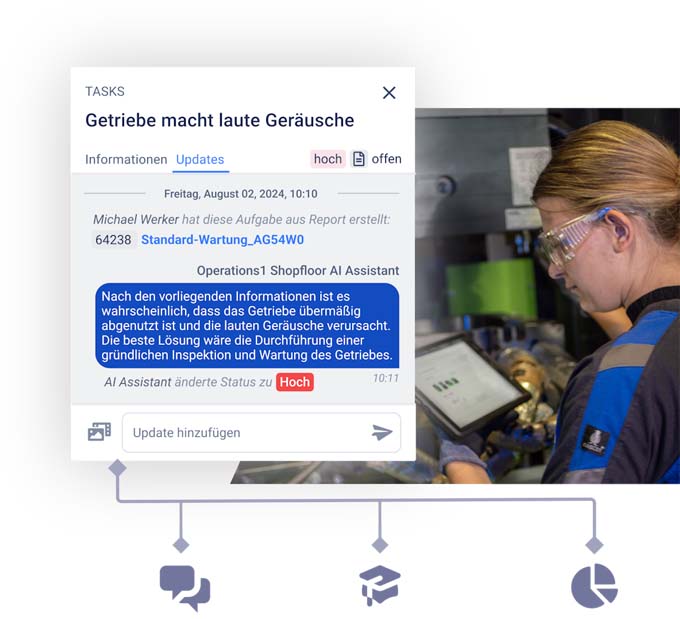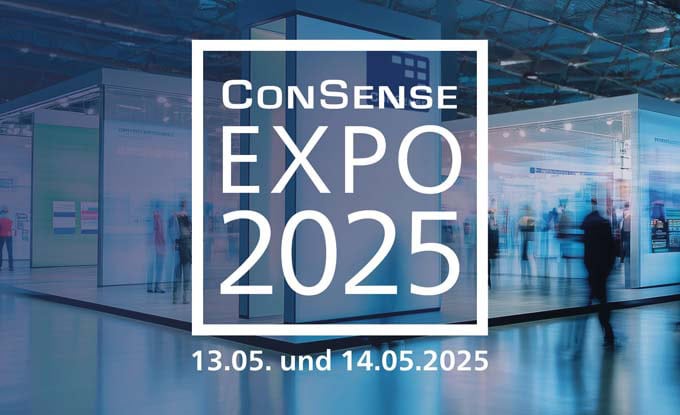Unleashing digital potential in modern manufacturing
The "Future of Industry" study by Staufen identifies digital excellence as one of four dimensions of competitiveness and a fundamental basis for a sustainable, adaptable and resilient company. Standing still is a hindrance and only progress promises long-term success and growth - manufacturing companies are no exception.

Even if digitalization, let alone the introduction of AI in modern manufacturing, is still progressing comparatively slowly, practical examples at the Future Manufacturing Event by Operations1 show how industrial companies can benefit from advanced technologies and intelligent manufacturing strategies today. In the following, I would therefore like to summarize some of the most important findings and derive how digitalization in manufacturing can be further advanced in the future.
How far along is digitalization in manufacturing?
Just a few years ago, Industry 4.0 was the big buzzword. According to a study report by BitKom in 2022, 90 % of the companies surveyed wanted to use Industry 4.0 applications in the future or were planning to do so. However, a recent survey by Staufen on digitalization in 2024 shows that the majority of willing companies are unable to implement these plans due to a lack of human resources (58 %) and unstructured data (53 %). In principle, the prerequisites are in place, as the market now offers many different solutions that provide digital support for a wide range of business areas - even without a great deal of human resources.
Driving the digitalization of store floor processes with innovative solutions
ProMinent GmbH is a good example of why traditional workflows urgently need to be translated into digital processes, especially when internal personnel resources are limited. Previously, the manufacturer of dosing technology and dosing pumps worked with analog error cards. Christian Braun from ProMinent describes the former process as very tedious. Employees first had to look up error codes on A4 lists before they could even fill in the cards. There was also an accompanying card that had to be attached to the corresponding product. However, not every employee always carried out this task at the same time; some even collected data throughout the week, only to enter it all at once by hand - and therefore often incorrectly. The error cards were then passed on to the next employee, who had to manually enter the results into Excel. Further Excel lists were added during the ongoing process. In other words, a lot of effort that cost employees a lot of time.
ProMinent therefore plans to introduce digital checklists, work instructions and error collection cards for quality management, which will enable everything to be bundled via a networked digital interface. There will only be one associated error card per error code, and the accompanying card will be replaced by a QR code that the worker simply has to stick on. All the data then comes together in our Connected Worker platform and, thanks to the SAP connection, an evaluation can also be digitally compiled directly.
When introducing digital processes, it is particularly important to get employees on board from the very first step and to demonstrate the future process in an understandable way. Even the initial skepticism of long-established workers quickly gave way to great enthusiasm after the convenient and time-saving scanning process was demonstrated to them.
Standardized processes and cloud solutions for more flexibility
The benefits of digitalization are particularly evident in quality inspection. At Quantum-Systems GmbH, a manufacturer of reconnaissance drones and other products, the move towards a digital future was unavoidable because order processing could no longer be handled with the usual level of quality due to increasing sales volumes and a rapidly growing workforce. In addition, production is subject to special requirements, as each installed part must be clearly traceable by serial number. An act that was previously recorded on paper and laboriously scanned. Digitization has created easy-to-follow work instructions that allow new employees to enter production with a significantly shorter training phase. Overall, digitization made the processes more transparent and traceable at all times, which enabled Quantum-Systems to qualify for the EN9100 certification, which is important in the aerospace sector. Because all instructions are stored digitally in the cloud, adjustments can also be made quickly and across the board. This allows the company to react flexibly to customer requests and changes at any time.
Artificial intelligence as a competitive advantage
In addition to traditional digitalization, intelligent manufacturing, i.e. the use of artificial intelligence, is also playing an increasingly important role. More and more companies are being asked by their management to implement improvements through AI in all departments. The ability of AI to make predictions and derive recommendations for action opens up new potential for manufacturing companies in many areas - from order processing to quality control. Nevertheless, traditional companies in particular are faced with the question of how to do this.
It doesn't always have to be a large-scale AI project. One example of how AI can be easily and, above all, usefully integrated into existing process chains is our AI Shopfloor Assistant, which integrates seamlessly into our Connected Worker platform and makes processes even more efficient and automated for companies.
Strengthened for the future of manufacturing
The use of AI on the store floor will solve numerous problems in the future and, thanks to technologies such as machine learning and computer vision, will lead to improved interactions between humans and machines. This increases safety in the workplace and allows employees to focus more on value-adding activities.
The manufacturing industry is at a turning point and those who don't take the plunge now will be left behind sooner or later. That's why Lena Weirauch, CEO & Co-Founder at ai-omatic solutions, recommends simply taking the plunge, because the barriers to entry for the use of generative AI have never been lower. Business decision-makers in manufacturing need to understand how critical the integration of advanced technologies such as AI, cloud solutions and digital transformation tools is for the future of the entire industry. These technologies are no longer distant visions, but concrete tools that are already creating competitive advantages and increasing industrial efficiency. It is noticeable that the fear of new technologies is gradually fading and giving way to a pragmatic and goal-oriented acceptance. This reflects a global trend that is gaining importance across industry boundaries.
About the author: Benjamin Brockmann has been CEO and co-founder of Operations1 since 2017. He studied at the Technical University of Munich from 2014 to 2016 and conducted research together with his co-founders at the Fraunhofer Institute, where he also received the content basis for the foundation through his master's thesis on worker information systems. He gained further experience at KPMG in IT & Finance Consulting and at Arthur D. Little in Strategy, Innovation & Technology. In his spare time, he enjoys using his international private pilot's license to see the world from above and playing tennis. More at www.operations1.com.









